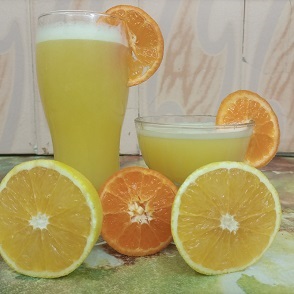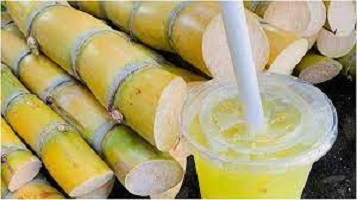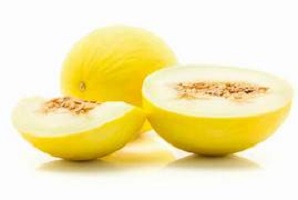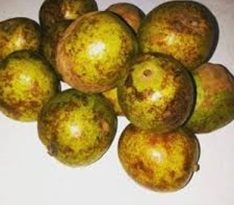How to Make Orange Juice at Home ~ 3 Methods
How to Make Orange Juice at Home ~ 3 Methods. Please watch >>>>

Orange juice made from fresh oranges is simply refreshing or nutritious for children and adults.
Fresh orange juice is popular all over the world.
It is the most popular fruit juice, as well as the most produced and consumed.
Fresh orange juice requires some effort, but it tastes far superior to orange juice from concentrate.
This orange recipe was inspired by a request for instructions on how to make fresh-squeezed orange juice.
You can also do this with a citrus reamer and you use a hand juicer with a strainer if you want less pulp.
How to make fresh-squeezed orange juice at home using any of the three methods
This sugar-free orange juice with or without pulp has only one ingredient (orange), is high in vitamins, and is delicious on its own or as part of a juice blend!
Making freshly squeezed orange juice requires a little more effort than buying a juice box from the store, but the difference in flavor and freshness is unrivaled.
Fresh orange juice is fruity and sweet, much sweeter than store-bought ‘from concentrate’ OJ, and free of added sugars and other ‘nasty’ ingredients.
Furthermore, when making orange juice at home, you can select whether you want orange juice with or without pulp. Not to mention that it is high in vitamins and has numerous health benefits.
Orange Juice Nutrition Facts
One cup (8oz) of orange juice contains 110 calories, 2g protein, 27g carbohydrates, and 0g fat. Orange juice contains a lot of vitamin C and potassium.
The USDA has provided the approximate values for a cup of orange juice, which are listed below. Be aware that nutrition facts may differ slightly between brands.
- Calories: 110
- Fat: 0g
- Sodium: 9.6mg
- Carbohydrates: 27g
- Fiber: 1g
- Sugars: 20g
- Protein: 2g
- Vitamin C: 60mg
- Potassium: 496mg
5 Surprising Orange Juice Benefits
Sweet orange juice is popular all over the world.
It is made by manually or commercially squeezing oranges to extract the juice.
It is naturally high in essential nutrients like vitamin C and potassium. Furthermore, commercial varieties are frequently fortified with calcium and vitamin D.
Nonetheless, there is debate about whether it contributes to a healthy diet.
Here are five of the health benefits of orange juice.
Is Orange Juice Good For You? 5 Impressive Benefits of Orange Juice
Oranges have a number of significant health benefits. Most people are aware that this tangy fruit is high in Vitamin C.
In fact, one medium cup of orange juice contains nearly 100% of your daily vitamin C requirement
It does, however, contain a variety of vitamins and minerals, including vitamin A, calcium, folate, potassium, and iron.
Vitamin C aids in immune system support, gum health, wound healing, and bone formation.
Meanwhile, potassium aids in the prevention of heart disease, strokes, and bone loss. It also aids in blood pressure regulation and lowers the risk of kidney stones.
Folate is necessary for pregnant women because it lowers the risk of birth defects.
Orange juice contains antioxidants such as flavonoids, carotenoids, and ascorbic acid, which are great for fighting free radicals and protecting against a variety of chronic conditions, as well as anti-inflammatory properties.
This sweet juice may help increase “good” HDL cholesterol levels while decreasing total and “bad” LDL cholesterol levels, as well as diastolic blood pressure.
Orange juice may help reduce inflammation markers, which may lower your risk of chronic disease.
Potential Side effects
While orange juice has several health benefits, it is also high in calories and sugar.
Furthermore, unlike whole fruits, it lacks fiber, making it less filling and possibly leading to weight gain.
In fact, multiple studies have found that drinking fruit juice on a regular basis can lead to weight gain over time.
Many types of orange juice also contain a lot of added sugar, which can raise blood sugar levels.
Several studies have found that drinking sugar-sweetened beverages on a regular basis, such as fruit juice, is associated with an increased risk of type 2 diabetes.
Portion control and choosing fresh-squeezed or 100% orange juice can help you maximize health benefits while lowering your risk of side effects.
To cut calories and avoid weight gain, try diluting orange juice with water.
Juice consumption for children should be limited to no more than 4 ounces (118 ml) per day for toddlers aged 1-3, 6 ounces (177 ml) for children aged 4-6, and 8 ounces (240 ml) for those aged 7-18.
Orange Juice Recipe
Because of these drawbacks, I drink homemade orange juice only once or twice a week, freezing leftovers to add to smoothies in smaller amounts or thaw later.
How to Make Orange Juice At Home, Orange Juice in Juicer, Mixer, Blender recipe
3 simple juicing methods for orange juice recipe: nothing beats a glass of freshly squeezed homemade orange juice in the summer.
A glass of orange juice delivers amazing flavor and so much more. It’s bright and sweet, with just the right amount of acidity.
It is high in vitamins and minerals and helps to boost immunity naturally. Homemade fruit juices are healthy if consumed in moderation because they are fresh and made without any additives.
Best Oranges for Juicing
When deciding which oranges to use to make orange juice, choose the fruit that will yield the most juice. For the best juice, I recommend Valencia oranges, followed closely by navel oranges.
Blood oranges are a good choice because they produce a lovely pinkish juice, whereas clementines and tangerines produce a sweeter beverage.
Finally, you can use whatever oranges you have on hand, but keep in mind that a fresh orange will be the juiciest.
Using a Juicer
Peel the oranges first to prepare them. Then, cut them into smaller pieces to fit through your juicer chute.
Feed a few at a time into your juicer chute and you’re done.
Using a Blender
Peel the oranges and, if desired, remove and discard the seeds
In a blender, combine the orange segments. If necessary, add a little water to help them blend (1/4 cup should be more than enough to avoid over-watering).
Blend until the mixture is juicy and pulpy. Then strain the resulting pulpy juice through a sieve or nut milk bag, or leave it as is if you prefer orange juice with pulp (for more nutrients).
With a Handheld Juicer
This probably doesn’t require much explanation. If you have a citrus juicer, cut the fruit in half, place it over the juicer, press down, and squeeze while rotating back and forth to extract as much juice as possible.
To make orange juice with pulp, simply spoon some from the remaining orange (after squeezing the juice out) and pour it into your glass
How to Store
For the most nutrients, fresh squeezed orange juice should be consumed right away.
Any leftovers, on the other hand, can be stored in an airtight glass container in the fridge for up to 3 days.
What to do with any leftover pulp
Orange pulp can also be frozen in an ice cube tray and used later in smoothies, soups, or baked goods. In addition, the pulp can be composted.
What to do with the leftover peel
You can zest some of the skin to flavor dishes or teas, lemonades, and even sugar.
Alternatively, make candied orange peel or use the halves to make orange candles if they are in good condition.
You can also make your own toxic-free all-purpose citrus cleaner with the leftover peels.
- If using method one or two, you can spend time removing as much white pith from the orange as possible to avoid bitterness. However, this is not required, and I frequently fail to do so.
- If you’re using method three, rolling the orange back and forth against a counter a few times can help loosen up the juice and allow you to squeeze out more.
Before rolling, you could also microwave the fruit briefly (for about 10-15 seconds). However, if you are concerned about losing nutrients, you should avoid any heating.
- To make ‘instant’ chilled juice, chill the orange overnight before juicing (or for 30 minutes in the freezer before juicing). You could also add ice, but this will quickly dilute the juice.
- If you find that a batch is too bitter, you can add a little natural sweetener to the juice. Sugar-free sweeteners such as erythritol or monk fruit sweetener can be used to make sugar-free orange juice.
How to Start Orange Juice Production in Nigeria or Africa: Complete Guide
Orange juice is a sweet and tasty nonalcoholic fruit drink made from oranges. The Nigerian market produces approximately 930,000 metric tonnes of citrus fruits per year from an estimated three million hectares of land.
In Nigeria, juice processing methods range from individual preparation at home for family consumption to multinational conglomerates employing multiple interconnected high-capacity plants.
Here, there is a high demand for fruit juice. Nigeria has a large market for fruit juice, with a population of over 165 million people and a national population growth rate of 5.7% per year.
Some of the difficulties encountered in orange juice production can be found in the areas of orange cultivation, harvesting, post-harvest processing, marketing, and storage.
Nonetheless, my aim here is to provide a step-by-step guide to orange juice production, as well as solutions to these challenges.
I will also show you how to start your own orange juice manufacturing business.
What is Orange Juice Production?
The extraction of liquid from oranges is known as orange juice production. It is extracted from the fruits either mechanically or by macerating them.
Business Opportunities in Orange Juice Production
- · Orange Juice as a Sweetener
- · Orange Essential Oil Production
Types of Orange Juice
- · Freshly Squeezed Juice
- · Not-from-concentrate Juice
- · Frozen concentrate orange juice
How to Start Orange Juice Production in Nigeria: Step-By-Step Guide
There are several requirements for starting orange juice production in Nigeria. First off, there is a need to have a business plan.
- · Sourcing for Raw Materials
- · Processing the Fruit Juice
- · Preservation
- · Packaging
Challenges of Orange Juice Production
The challenges of orange juice production include:
- High cost of equipment and machinery
- Oranges are highly perishable
- Low consumer purchasing power
- Orange fruits are seasonal, and this affects the price of orange juice
- Absence of adequate storage facilities
- Marketing challenges
- Difficulty in reaching the international market
- Heavy market competition
- Short orange juice shelf life
- Lack of loans for orange juice investors
- Limited support by the government
- Fluctuations in market prices
Due to the vast market demand and your ability to build a broad supply chain network, the orange juice production business in Nigeria can be a lucrative and profitable venture to start.
If you want to start a business, the orange juice production business in Nigeria is a great place to start.
The Bottom Line
Orange juice is a popular beverage that contains antioxidants and micronutrients such as vitamin C, folate, and potassium.
Regular consumption has been linked to a variety of health benefits, including better heart health, reduced inflammation, and a lower risk of kidney stones.
It is, however, high in calories and sugar, so consume it in moderation and choose fresh-squeezed or 100% orange juice whenever possible.
People also ask
How do you make orange juice?
- To make orange juice with a juicer, buy good quality oranges.
- Peel the oranges
- Separate out the orange segments.
- Add a few orange segments at a time in the juicer.
- Collect the orange juice with a juicer (hopper) in a jar
- Serve orange juice in the juicer immediately.
How orange juice is made step by step?
- Rinse the oranges underwater
- Peel the oranges and slice them into four parts.
- Place the sliced oranges into the grinder or juicer
- Drizzle some honey or add sugar and also add a few ice cubes.
- Grind until they become juicy
- Sieve the juice over a mesh strainer
- Pour the collected orange juice into tall glasses.
Can you make orange juice without a juicer?
Start by peeling your oranges with a Perry knife, and then chop into fourths before tossing them into your blender.
After that, blend until consistent in texture and then pour through a mesh strainer or nut milk bag to separate all solids from the juice
Is it possible to can homemade orange juice? Is it possible to can orange juice?
A: It can be canned in the same way that grapefruit juice is.?
Heat the juice to 195 degrees F, then pour it into jars and process pints and quarts in a boiling water canner for 15 minutes.
How many oranges do you need to make orange juice?
What is the number of oranges in a cup of juice? 1 cup of juice is made from three medium-sized oranges.
Do you add sugar to your orange juice?
Fresh orange juice is fruity and sweet – much sweeter than any ‘from concentrate’ OJ in the store, and without any ‘nasty’ additives.
Furthermore, when making orange juice at home, you can select whether you want orange juice with or without pulp.
Not to mention that it is high in vitamins and has numerous health benefits.
What is real orange juice?
Orange juice is made up of organic acids, sugars, and phenolic compounds at the molecular level. Citric, malic, and ascorbic acid are the most common organic acids found in orange juice. Sucrose, glucose, and fructose are the three major sugars found in orange juice.
How is simply orange juice made?
A: The oranges used in Simply Orange are carefully chosen and harvested at their peak of ripeness.
Oranges are washed, sorted, and squeezed after harvesting to collect fresh juice and natural oils.
Some oils may be added back into the juice later to ensure a consistent fresh-squeezed flavor.
How can you make juice?
Making Juice
The three fundamental steps are as follows: Wash the fruits and vegetables; press the produce to extract the juice;
Finally, for food safety, the juice is typically heat pasteurized.
How do you make orange juice by hand?
Simply roll the fruit against a hard surface with the heel of your hand to soften it slightly.
This motion helps to break the membranes that contain the juice and makes squeezing easier.
The citrus should then be cut in half along the widest part of the equator.
Do you peel your oranges before juicing them?
There is no need to peel oranges before juicing them if you use a citrus juicer.
If you’re using a different type of juicers, such as a masticating or centrifugal juicer, you’ll need to peel your oranges first.
The skin has a bitter flavor and contains oils that may upset your stomach.
Is orange juice healthy?
Orange juice is a popular beverage that contains antioxidants and micronutrients such as vitamin C, folate, and potassium.
Regular consumption has been linked to a variety of health benefits, including improved heart health, reduced inflammation, and a reduced risk of kidney stones.
How long will freshly squeeze orange juice last?
Approximately 2 to 3 days
Refrigerate freshly squeezed orange juice in a covered glass or plastic container to extend its shelf life.
How long will freshly squeezed orange juice keep in the fridge?
Freshly squeezed orange juice that has been refrigerated continuously will keep for about 2 to 3 days.
How do you make orange juice without it tasting bitter?
If you find it too bitter, try sweetening it with sugar or honey.
Add a little half-and-half and a 12 teaspoon vanilla extract to make your orange juice creamy.
To change the flavor of your orange juice, add some fresh mint or lime juice.
Which oranges are suitable for juicing?
Valencia and navel oranges make the best juices, but other types also make a sweet and refreshing orange drink. Orange juice has numerous health benefits.
Making your own orange juice is always preferable to purchasing commercial juices, which are high in sugar or artificial sweeteners.
Can I juice a whole orange?
The peel is high in minerals like potassium and magnesium, as well as vitamins B6, B2, and C. Juice the entire fruit, including the skin, for maximum benefits.
Wash the oranges thoroughly under running water to remove any dirt or potentially harmful bacteria.
Is Tropicana truly made of 100% orange juice?
No, it is not a genuine fruit juice. Sugar and preservatives are abundant in ready-to-drink fruit juices.
A fruit’s true goodness is a myth. They actually contain more sugar than carbonated beverages.
Why is orange juice unhealthy?
The high sugar concentration in orange juice, particularly orange juice with added sugar, makes it a high-calorie beverage.
It is acceptable for people who are on a calorie-restricted diet to lose weight and to eat low-calorie, dense foods.


